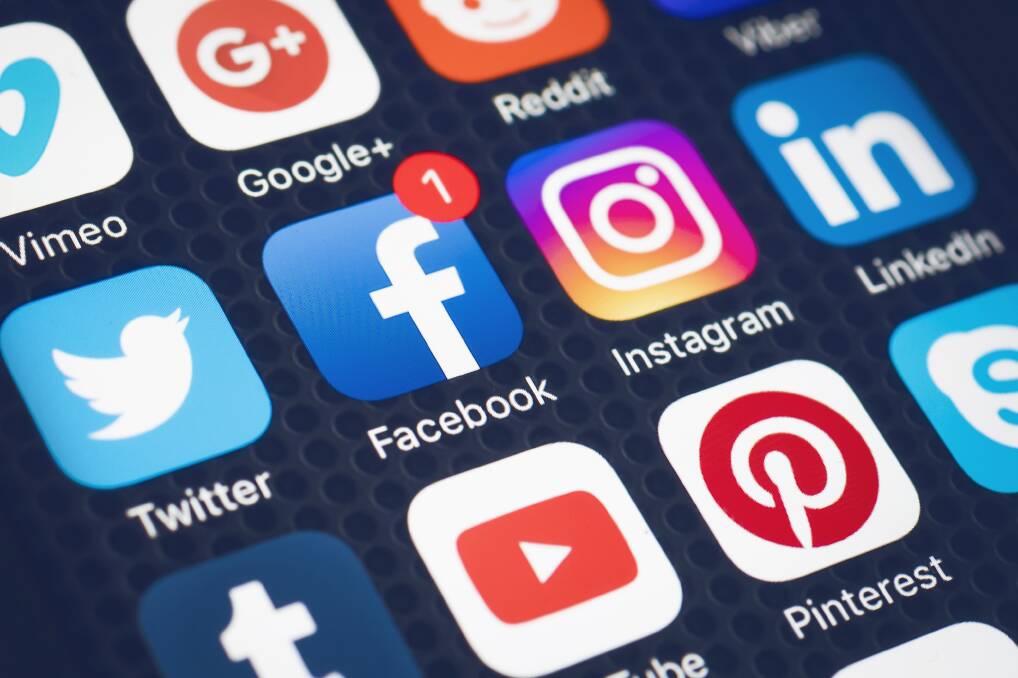On another day, in another paper, somebody whose personal wealth was almost entirely dependent on the tourist industry was insisting, there's no answer so "we'll just have to get used to coronavirus".
Subscribe now for unlimited access.
or signup to continue reading
On the same day, in another country, a president petulantly asserted his country was "doing just great".
This man, the most powerful politician of the most powerful country, is now so far immersed in fabrication it's difficult to know if he's still tethered to the real world or simply rewriting reality to suit himself.
How can this happen? What seismic shift has occurred in society that we are pushed so far from the moorings of truth that lies have become normalised?
That the lives of those who can't survive the virus are considered so absolutely dispensable, simply so that the rest of us can enjoy our prosperity without being troubled by the less fortunate.
There's been no audible shattering yet something critical - even fundamental to the very workings of our society - has snapped.
The internet has fractured the public sphere and is splintering us apart.
The internet has seemingly brought us closer together than ever before; and yet today we are further apart than ever.
We know how the invention of the printing press transformed society. Later radio and, subsequently, television similarly revolutionised our means of communication and irrevocably altered the way we understand and interpret the world.
These were, however, technologies of one (the publisher, then broadcaster) to many (the audience).
The internet is the reverse of this, because it thrives on fracture. Instead of bringing us together and reinforcing a shared view of the world we are driven apart, into echo chambers of division where extreme views can thrive.
It's no accident that the replacement of traditional media structures has been accompanied by the disintegration of established political norms.
The voices that are privileged by the new means of communication (whether Facebook, Twitter, or even Tik-Tok) aren't those of the centre.
They are, rather, the voices from the edge offering "simple solutions", proffering easy answers, and promising better worlds for everyone; no pain, no hard work. What's not to like?
This new political world is brilliantly described by Australian political thinker John Keane.
Described by the ABC as one of our "great intellectual exports" his life's task has been simple: defending civil society and true democracy. This is why his definition of the changing contours of democracy is so startling.
In his latest book, The New Despotism, Keane teases out the way despots - although they call themselves leaders - subvert democracy to seize power and then subvert the structures of the state to hold it.

They rule not as ruthless autocrats but rather by co-opting "the people" to buttress and strengthen their power. That's why he calls them despots. It harkens back to Aristotle and the Greek meaning of the word - master, or head-of-the-household.
Such father-figures brush over ideological divides by presenting themselves as the natural choice and source of political order.
Patronage networks are established to offer rewards and bind individuals more closely to the needs of the leaders.
Paternalistic governments establish feedback mechanisms to listen to the people (think mass research reports), but their actions are simply designed to reinforce the entrenched hierarchy.
Think, for example, of Singapore, where last week, for the 15th successive time since 1959 the People's Action Party declared victory and Lee Hsien Loong (the son of first Prime Minister Lee Kuan Yew) was, yet again, installed as PM. Democracy, yes, but one seemingly without the need to ever actually change the government.
Singapore initially triumphed over coronavirus before underlying social weaknesses - specifically foreign labourers living in crowded accommodation - meant that the virus incubated among these lower socioeconomic groups and spread like wildfire.
Taiwan, by contrast, didn't have cheap labour and does have a highly-combative political environment. It, however, seems to have managed to almost completely escape the worst effects of disease.
There are no simple answers that explain why one country has suffered so much more from coronavirus than another. There are, however, features that explain why it has spread the way it has.
The simple idea was that "expert" advice would provide the foundation for quickly defeating the virus. The problem with this is that there are no simple answers.
Even something as simple as using masks (yes, wear them!) has been politicised and infantilised before becoming subsumed into other debates that are not genuinely about public health at all. It turns out there are no ready-made strategies or even correct ways of proceeding.
The virus needs to be understood both medically and technically but the fact that it transmits from person-to-person means that any answer to defeating the spread of the virus must be socially-based.
It's no accident, for example, that the current second wave of the virus is emanating from Victoria or that this was the state that declined the use of the military to assist in policing the isolation of returned travellers. Those were political decisions.
"Fathers" aren't, and should never be, leaders of countries. Nobody denies, for example, the exceptional actions of Premier Daniel Andrews, but backing him doesn't excuse Victoria's decision to use private security companies, without even calling for tenders, to sequester returned travellers.
Similarly the Prime Minister may revel in being called a "daggy-dad", but that's not what we need as a leader.
The internet has fractured the public sphere and is splintering us apart. Failure to simply make the new publishers like Facebook responsible for the muck they disseminate consigns our society to even more division and polarisation.
These engines are not simply transmitting messages, they shape them for audiences. They are publishers. If we want to regain control over society we need to retake control over the way we communicate within it.
- Nicholas Stuart is a Canberra writer.


